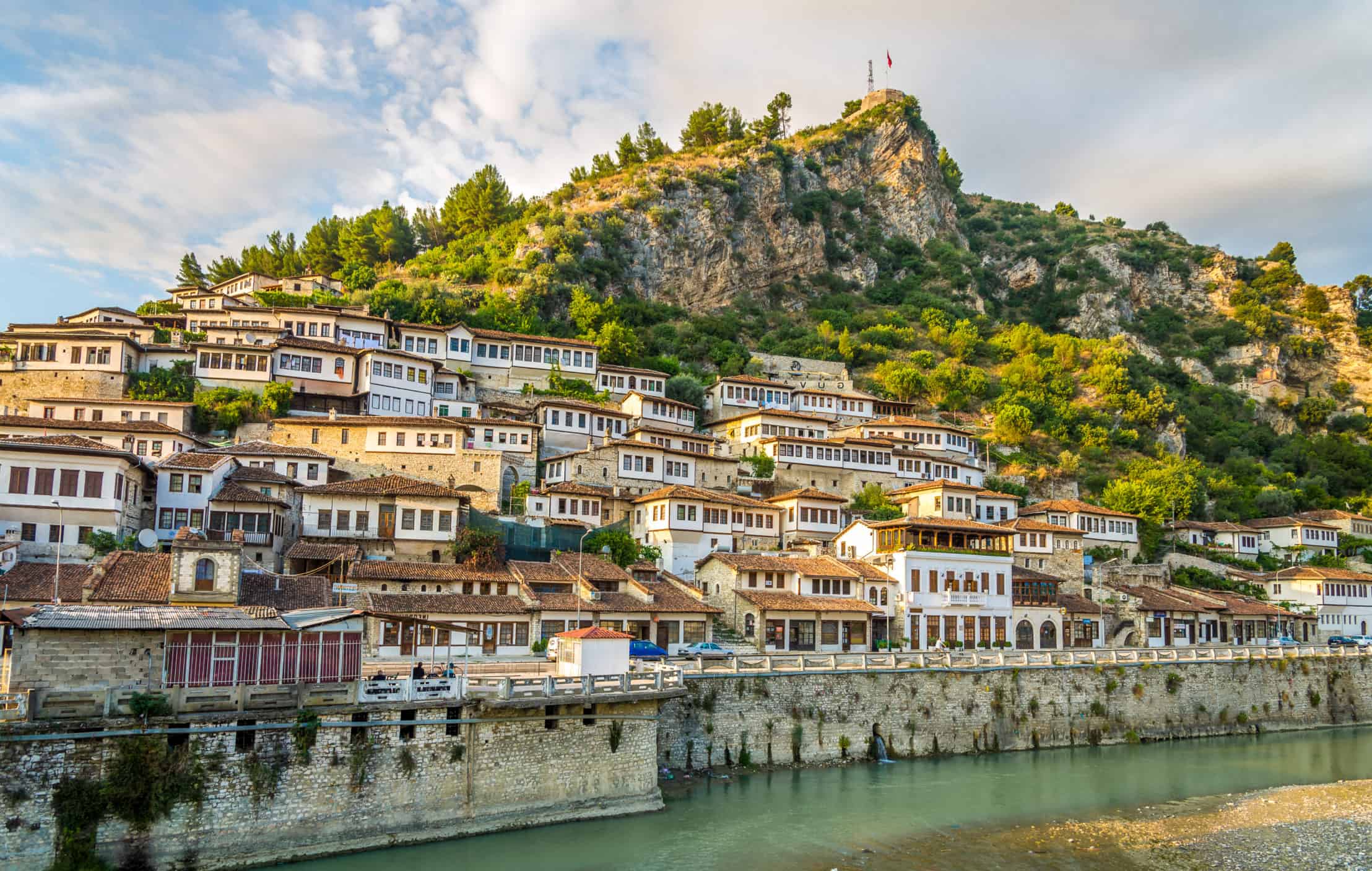
Albania, a small yet captivating country in Southeast Europe, often flies under the radar. Nestled between Greece, Montenegro, Kosovo, and North Macedonia, this hidden gem boasts a rich history, stunning landscapes, and a vibrant culture. But what makes Albania truly unique? Did you know that Albania was one of the most isolated countries during the Cold War? Or that it has more bunkers than any other country in the world? From its ancient ruins to its pristine beaches, Albania offers a treasure trove of surprises. Curious to learn more? Here are 25 fascinating facts about Albania that will leave you eager to explore this intriguing nation.
Key Takeaways:
- Albania's diverse natural beauty, from the stunning Albanian Alps to the ancient Lake Ohrid, makes it a hidden gem for nature lovers and adventure seekers.
- With a rich history dating back to ancient civilizations, unique traditions, and a growing economy, Albania offers a vibrant and fascinating cultural experience for visitors.
Geography and Nature
Albania, a small country in Southeast Europe, boasts stunning landscapes and diverse natural beauty. Here are some fascinating geographical and natural facts about this hidden gem.
-
Albania is bordered by Montenegro, Kosovo, North Macedonia, and Greece. It also has a coastline along the Adriatic and Ionian Seas.
-
The country is home to the Albanian Alps, also known as the Accursed Mountains, which offer breathtaking views and challenging hiking trails.
-
Lake Ohrid, one of Europe's oldest and deepest lakes, is shared by Albania and North Macedonia. It is a UNESCO World Heritage site.
-
Albania has more than 3,450 species of plants, making it one of the most biodiverse countries in Europe.
-
The Llogara Pass, a mountain pass in the Ceraunian Mountains, provides stunning views of the Ionian Sea and the Albanian Riviera.
History and Culture
Albania's rich history and vibrant culture are deeply rooted in its ancient past. Here are some intriguing historical and cultural facts.
-
The ancient city of Butrint, a UNESCO World Heritage site, dates back to the 7th century BC and features ruins from Greek, Roman, Byzantine, and Venetian periods.
-
Albania was part of the Roman and Byzantine Empires before becoming part of the Ottoman Empire for nearly 500 years.
-
The national hero, Skanderbeg, led a rebellion against the Ottoman Empire in the 15th century and is celebrated for his role in preserving Albanian identity.
-
Albania declared its independence from the Ottoman Empire on November 28, 1912.
-
The country was isolated under a communist regime from 1946 to 1991, led by Enver Hoxha.
Language and People
The Albanian language and its people are unique and fascinating. Here are some facts about the language and population.
-
Albanian is one of the oldest languages in Europe, with its own distinct branch in the Indo-European language family.
-
The language has two main dialects: Gheg in the north and Tosk in the south.
-
Albania has a population of approximately 2.8 million people.
-
The majority of Albanians are Muslim, with smaller communities of Christians and other religions.
-
The traditional Albanian code of conduct, known as Kanun, emphasizes honor, hospitality, and family loyalty.
Economy and Infrastructure
Albania's economy and infrastructure have seen significant changes over the years. Here are some key facts.
-
Agriculture plays a significant role in the economy, with major products including wheat, corn, tobacco, and olives.
-
The country is rich in natural resources such as oil, natural gas, coal, and minerals like chromium and copper.
-
Tourism is a growing industry, with visitors attracted to Albania's beaches, mountains, and historical sites.
-
Albania has invested in improving its infrastructure, including roads, airports, and ports, to boost economic growth.
-
The national currency is the Albanian lek (ALL).
Unique Traditions and Customs
Albania has many unique traditions and customs that reflect its rich cultural heritage. Here are some interesting facts.
-
Besa, meaning "to keep the promise," is a fundamental concept in Albanian culture, emphasizing trust and loyalty.
-
The traditional Albanian dance, Vallja, is performed at weddings and celebrations, featuring intricate footwork and colorful costumes.
-
Albanians celebrate Dita e Verës, or Summer Day, on March 14th, marking the end of winter and the arrival of spring.
-
The country has a strong tradition of polyphonic singing, recognized by UNESCO as an Intangible Cultural Heritage of Humanity.
-
Albanian cuisine features a mix of Mediterranean and Balkan flavors, with popular dishes including byrek (savory pastry), tavë kosi (baked lamb with yogurt), and fërgesë (pepper and tomato stew).
Albania's Unique Charm
Albania's rich history, stunning landscapes, and vibrant culture make it a fascinating place. From ancient ruins to beautiful beaches, there's something for everyone. The country's unique traditions and warm hospitality leave a lasting impression on visitors. Whether exploring the capital city of Tirana or hiking in the Albanian Alps, you'll find plenty of adventures. The delicious cuisine, influenced by Mediterranean and Balkan flavors, is another highlight. Albania's commitment to preserving its natural beauty and cultural heritage is evident in its many UNESCO World Heritage sites. With its blend of old-world charm and modern attractions, Albania offers a truly unique experience. So, if you're looking for a destination that's off the beaten path yet full of surprises, Albania should be on your list. Discover the hidden gems and enjoy the charm of this remarkable country.
Frequently Asked Questions
Was this page helpful?
Our commitment to delivering trustworthy and engaging content is at the heart of what we do. Each fact on our site is contributed by real users like you, bringing a wealth of diverse insights and information. To ensure the highest standards of accuracy and reliability, our dedicated editors meticulously review each submission. This process guarantees that the facts we share are not only fascinating but also credible. Trust in our commitment to quality and authenticity as you explore and learn with us.


